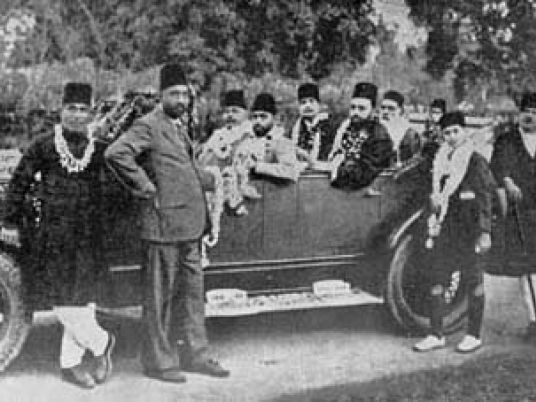
The Pakistani Embassy in Cairo and the Egyptian Ministry of Culture celebrated the anniversary of the poet and philosopher of the orient, Muhammad, at the Supreme Council for Culture.
The event was attended by university professors, poets and ambassadors in recognition of Iqbal’s contribution to peace, tolerance and human progress.
Afghan Ambassador in Cairo Fazlur Rahman Fazil talked about Iqbal’s prose “The Reconstruction of Religious Thought in Islam,” which was translated by Abbas Mahmoud al-Aqqad, his poems “The Secret of the Self” and “Symbols,” which were translated by Abdel Wahab Azzam, and “Gift from Hijaz,” which was translated by Hussein Mogib al-Masry.
Prominent poet Farouk Shousha recited to the audience some of Iqbal’s poetry and talked about his creativity. He said his poem Hadith al-Rouh that Umm Kulthum sang introduced the great poet to the Arab world. He also compared Iqbal to the German philosopher, Nietzsche, and said that he personally admires Iqbal’s focus on the spiritual side of the human personality, in addition to knowledge and science.
Professor Ibrahim Mohamed Ibrahim, head of the Al-Azhar University Urdu Language Department, said Iqbal was a poet and a philosopher of the whole of humanity. He spoke of Iqbal’s ability to unite millions of Indian Muslims in one independent homeland, and the tolerance in his thoughts that did not know racial discrimination in any form.
Al-Azhar University Professor of Urdu Hana Abdel Fattah said Iqbal came to Egypt in 1931 and met with thinkers and religious scholars. She said that he also visited the Al-Azhar mosque, the Amr ibn al-Aas mosque and the pyramids, then went to the Al-Aqsa mosque in Palestine. She also said that Iqbal wrote poetry in Persian and Urdu, and wished he could do so in Arabic.
At the end of the ceremony, Pakistani Ambassador Mansurul Haq said he was delighted that this celebration coincided with the Pakistani activist Malala Yousafzai winning the Nobel Peace Prize. He also said that Iqbal’s granddaughter lives in Egypt and is married to an Egyptian, and he thanked Ambassador Amr Moawad, the son of the great writer Ahmed Moawad, for his significant input.
“Iqbal’s eternal message that we all still need was to spread peace and love among people and to upgrade the human self,” he said.
Edited translation from MENA
